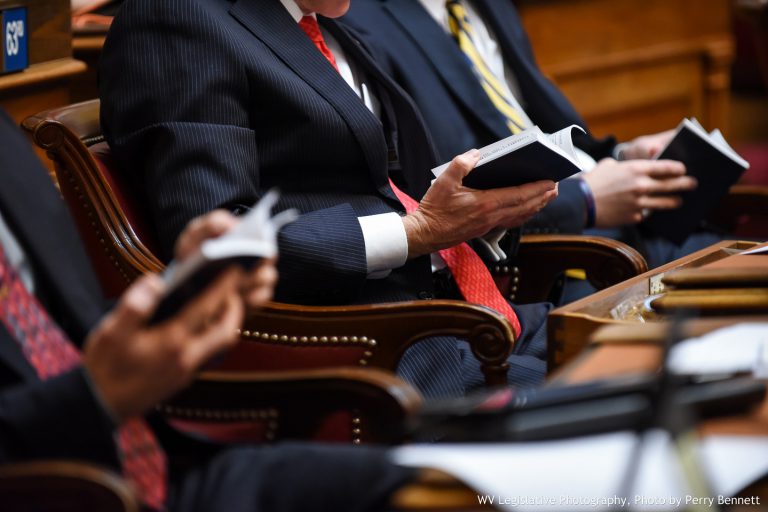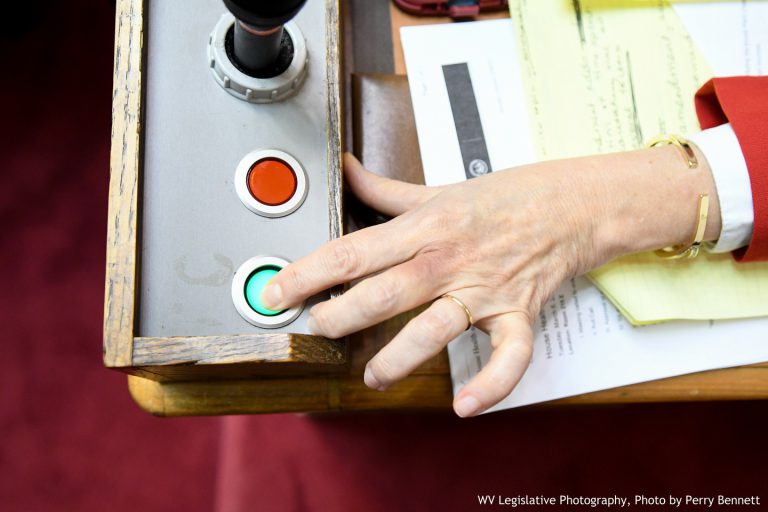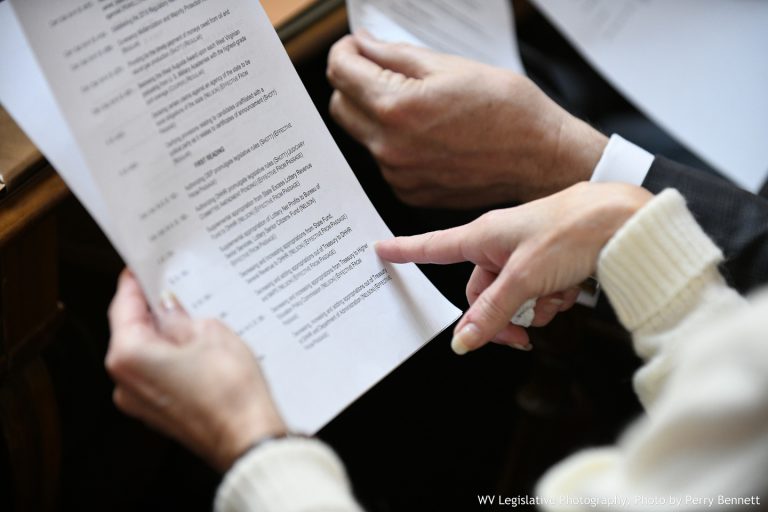As of 4 p.m., Wednesday, February 24, 2010, the forty-third day of the 79th Legislature’s 2nd Regular Session, 1373 bills have been introduced in the House of Delegates. Of those, 58 have passed and have been sent to the Senate for consideration. The bills passed include:
House Bill 2050 would increase the members of the West Virginia Route 2 and Interstate 68 authority from 20 to 26. The bill also expands their jurisdiction to include Cabell, Mason and Jackson counties.
House Bill 3110 would rename conservation officers to be natural resources police officers.
House Bill 4034 would authorize any municipality to enact by ordinance a vacant building registration program. It also allows a municipality to collect fees from the vacant building’s landowner.
House Bill 4035 would relate to electronic filing of tax returns and electronic funds transfers in payment of taxes. Specifically, it requires taxpayers with a tax liability of $10,000 or more to file electronically. Additionally, it requires an employer with 50 or more employees to file withholding returns electronically.
House Bill 4036 would establish the Judicial Vacancy Advisory Commission, which will assist in filling judicial vacancies.
House Bill 4037 would authorize certain bond issuers to receive credit payments with respect to federal subsidy bonds. The bill also clarifies that these bonds are exempt from taxation as set forth in current state law.
House Bill 4143 would require applicants for emergency medical services certification to allow the state police access to personal background information. The bill also provides immunity for certified persons who report violations.
House Bill 4176 would establish a single state wide health care credentialing verification organization.
House Bill 4188 would create the Anti-Criminal Street Gang Act. The bill sets forth prohibitive acts and activities in association with a criminal street gang.
House Bill 4187 would continue the current hazardous waste management fee until 2015.
House Bill 4210 would require the Public Employees Insurance Agency Finance Board to have a quorum of five members present at any public hearing.
House Bill 4277 would define specific terms and corrects outdated language. It also authorizes the Secretary of the Department of Environmental Protection to issue National Pollutant Discharge Elimination System permits.
House Bill 4292 would require a person to have a bachelor’s degree or two years of magistrate experience to serve as a magistrate.
House Bill 4327 would require the Board of Barbers and Cosmetologists to establish a barber’s apprentice program and permits the board to license an applicant from another jurisdiction who completed an apprentice program.
House Bill 4352 would authorize the West Virginia Supreme Court of Appeals to create a Business Court Division within certain circuit court districts.
House Bill 4354 would include any injunctive or protective order issued under the WV State code that allows law-enforcement officers to seize weapons in possession of domestic violence respondents.
House Bill 4361 would remove provisions that prohibit the sharing of domestic violence information with other governments. The bill also broadens the definition of law-enforcement agency.
House Bill 4457 would clarify procedures and requirements relating to the access to and protection of cemeteries.
House Bill 4593 would establish the High School Graduation Improvement Act. The bill also increases the minimum age for ending compulsory school attendance from 16 to 17 years of age. Additionally, the bill reduces the number of days of unexcused absences before enforcement of attendance begins from 10 to five.





 The Senate reconvened today at 11 a.m. and passed
The Senate reconvened today at 11 a.m. and passed 
 The Senate reconvened today at 11 a.m. and passed 16 bills.
The Senate reconvened today at 11 a.m. and passed 16 bills.  Additionally, the Senate advanced several bills to third reading, including
Additionally, the Senate advanced several bills to third reading, including 
 As voices of the Glenville State Choir filled the chamber, the Senate reconvened today at 11 a.m.
As voices of the Glenville State Choir filled the chamber, the Senate reconvened today at 11 a.m. 